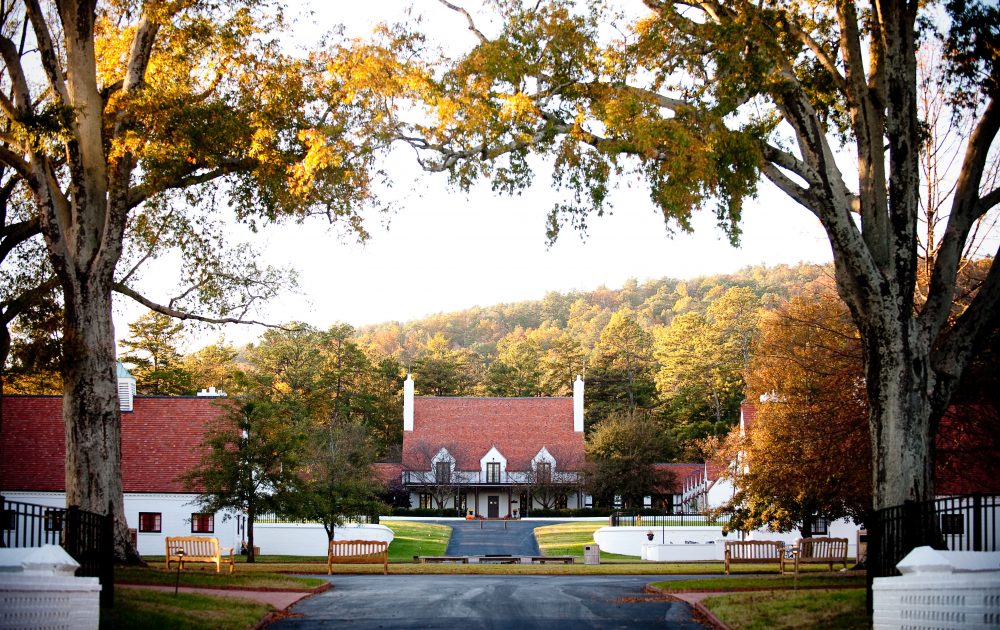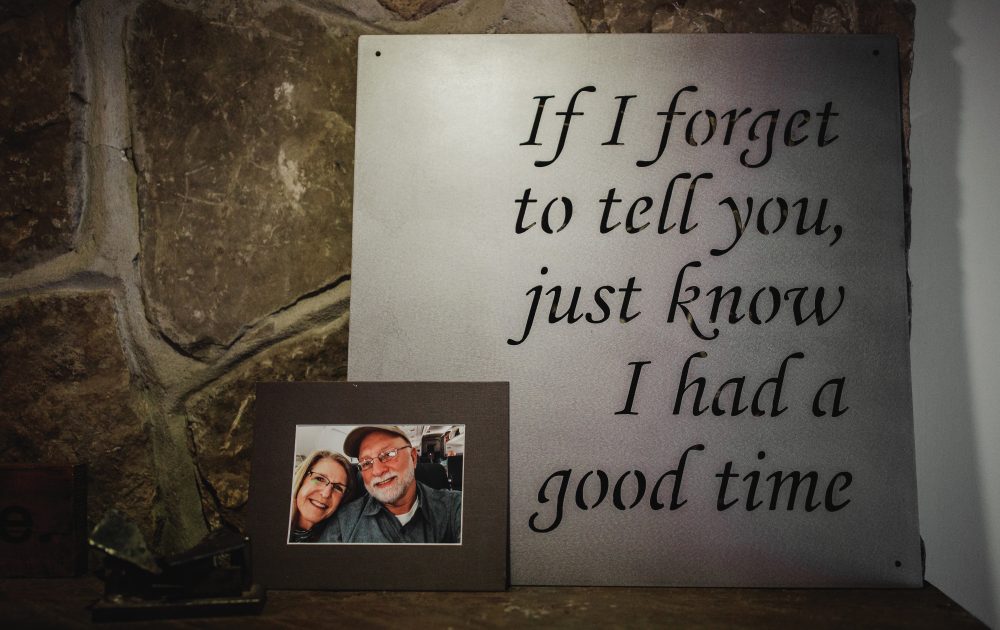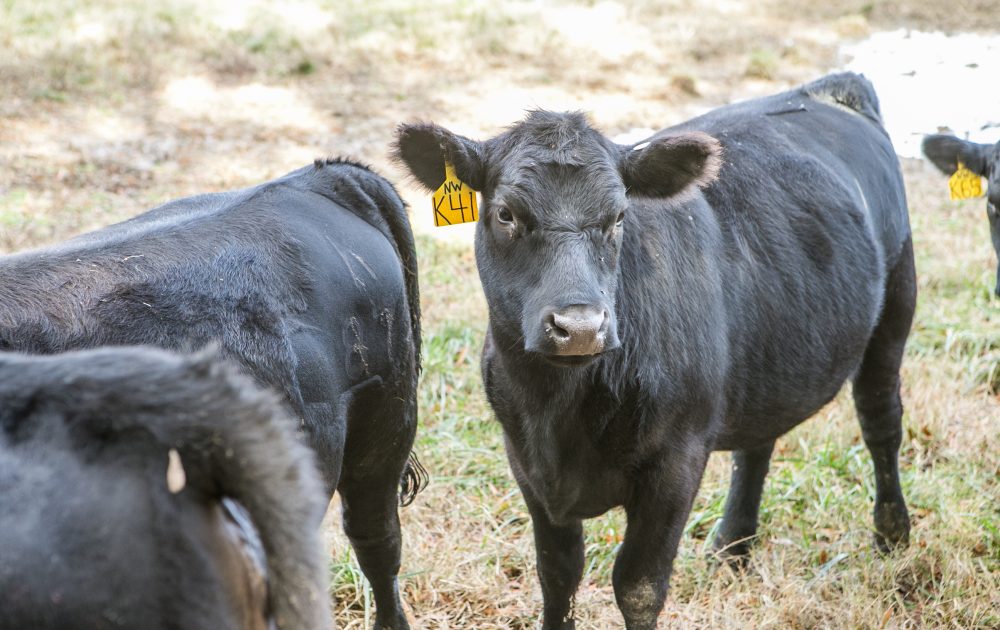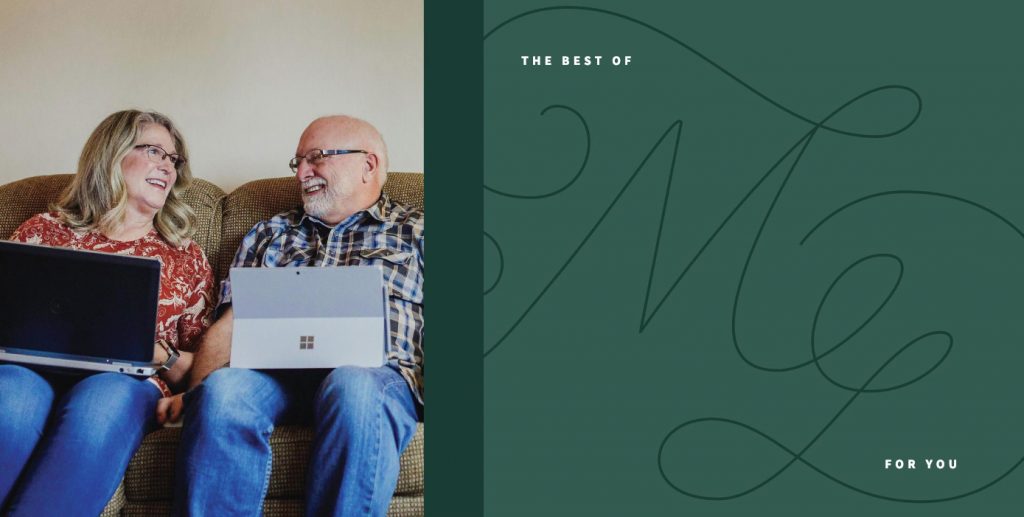
Photos Cameron Flaisch
On Sunday nights, 24 weeks out of the year, Terry and Theta Shank pack their suitcases and move into The Normandy Inn at WinShape Retreat (located on the Mountain Campus of Berry College) to welcome couples for a week of intensive counseling and renewal for couples in crisis.
While they are not counselors themselves, Terry and Theta are full-time WinShape intensive hosts who provide pastoral care and concierge services for the couples. WinShape Marriage partners with national ministries who provide licensed therapists to facilitate the program, while intensive hosts like Terry and Theta make sure the couples feel at ease and well-cared for during their experience.
“Our role is really to take away things that are in the way of couples engaging with the intensive process,” explains Terry. Theta nods in agreement. “We’re taking away all excuses. We’ve gotten things at the store the couples needed. We’ve gone to the airport to find missing luggage.”
The moment the couples arrive on the property, sometimes together and sometimes separately, Terry and Theta are ready to receive them in the parking lot. As they take luggage and usher them through the large wooden doors of Normandy Inn, there is no stilted formality. Rather, the Shanks strive to provide unconditional love, care and safety for a couple who may or may not be glad to be there.
As they guide the spouses to their rooms, Terry and Theta encourage the couple to take a look into the closets. There, lining the walls from floor to ceiling, are notes from former couples staying at the marriage retreat. Each story and message is distinct. Some are personal and lengthy; others simply encourage the new couples to trust the journey they are about to begin.
“We’ve had that transformational or breakthrough moments happen in the closet before the intensive therapy even starts, just by reading the testimonies that paint a picture of the struggle,” says Theta.
Whether the couple is receptive to the closet notes or not, the Shanks help to encourage them to stay positive, asking them to trust the process they are about to begin. “I tell them, ‘It’s going to be a good week. Stay curious,’” says Theta.
“We want them to enjoy arriving because it helps to lean them into the intensive experience,” shares Terry. “Because if they’ll lean into the process itself, that’s when they’ll begin to see the possibilities.”
While they are not in the room during group sessions, Terry and Theta know what the couples are going through, because they too have attended an intensive in 2011. “We make sure we normalize the idea that there is no perfect person and no perfect marriage on the planet… and we let them know that we too have attended a marriage intensive,” says Theta.
While Terry and Theta had a good marriage before the intensive, and had never been to therapy before, the experienced proved far more enriching than either one of them expected.
“Going into the intensive, we started to see that there were things that were deeper for us than we knew. Things that affected the way we looked at the world. And those were individual things…and as we started to get some insight into ourselves, we began to realize just how broken we might actually be. Not broken enough for our marriage to fail, not broken enough for me not be successful in the world; but broken enough that I wasn’t my best,” says Terry.
The desire to be the best individuals and to have the best marriage possible is what spurred Terry and Theta onward in their intensive journey. For Theta, the biggest takeaway of that week involved her career and calling. Despite being a part of the WinShape Foundation and its Retreat ministry for years, and a stay-at-home mom for years before that, she felt a draw towards hospitality consulting.
“[Before the intensive] I had believed a lie that someone in authority over me had told me. It shut me down…from wanting to work in hospitality consulting business. And God unlocked that in the intensive. And as a result my business came to be,” smiles Theta.
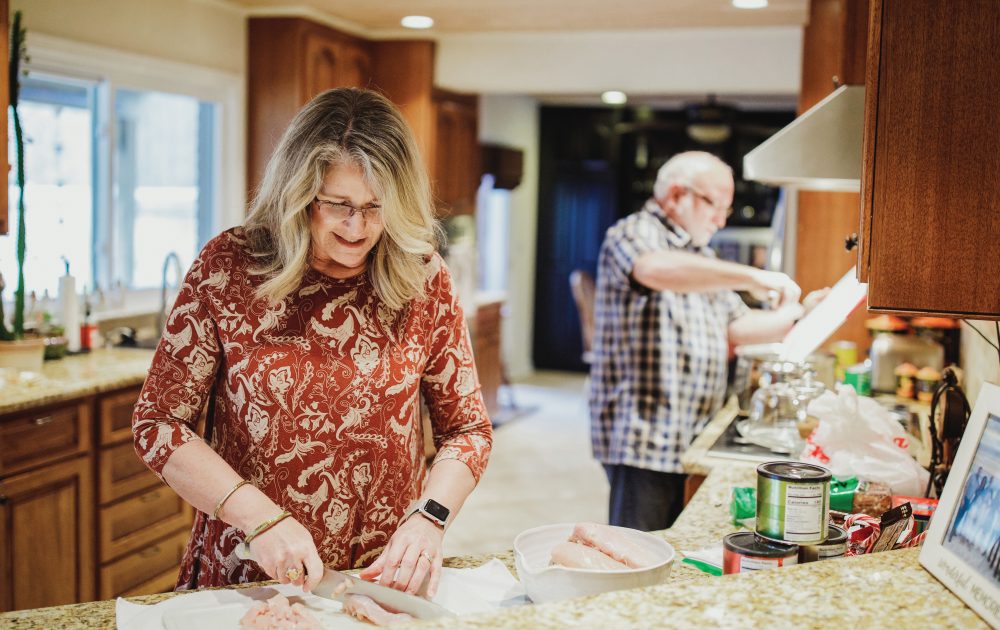
Now, everything Theta makes doing hospitality consulting through The OPEN Door Consultant she gives away to different missions and organizations.
“Right now it all goes to Haiti. And if I had believed that lie [about myself and my business potential] then a pavilion wouldn’t have been built for widows in Haiti. That’s the power of one moment in an intensive. It changed my trajectory, which in turn is changing the trajectories of about 60 widows and widowers in Haiti,” says Theta.
Another thing the Shanks took from their intensive experience was the tools of communication they put into practice every day. “You know, there was a season in our married life where I wouldn’t talk about certain things to Terry. I called it my ‘list,’” Theta explains.
But through techniques learned through WinShape Marriage ministry, Theta and Terry have learned how to be safe and communicate openly with one another.
Since their own transformational moments during the intensive, Terry and Theta have witnessed countless other couples’ transformational journeys through the years. Couples are able to find the space, the time and what Terry and Theta call, “the grace” at an intensive, while doing the work necessary to improve their marriage through group therapy sessions with trained professionals from WinShape Marriage’s ministry partners.
Their partners are: The Center for Relational Care, Focus on the Family, Hope Restored and The Hideaway Experience.
“Understandably, a good number of people are cautious about going into a group therapy session. A group session looks like about five couples max, sitting on couches next to each other and airing their feelings that they’ve never told anyone else before,” says Terry. “And there can be a lot of fear and anxiety surrounding that, but what couples soon realize is that as one couple begins to share their story, the other couples look at each other and realize, ‘Oh wow, they have the same problems too.’”
Even though couples might not be going through the exact same circumstances, group therapy provides a chance for couples to get outside of themselves and see the bigger picture.
“We all have opportunities to grow, and we can see it in others sometimes faster than we can see it in ourselves. So [in group therapy] the principles all of a sudden speak louder than the situation,” Terry says.
Theta adds, “There’s a momentum to it.” When one couple has a breakthrough the other couples are inspired by hope for their own relationship.”
Terry and Theta also emphasized that the trained counselors work hard to make sure there is absolutely no judgment present. “The beauty of the room is that there is no judgment. None. It’s the sweetest, safest environment…It’s just safe. It’s the way church really is supposed to be. It’s like saying, ‘let’s pull off all the facade and let’s just take care of one another,’” explains Theta.
“You know, often the same people who said they wanted it to be individual therapy at the beginning of the week, later say that they wouldn’t trade the group portion for anything,” Terry recalls.
Now with over 15 years working for WinShape, running their own business, attending WinShape Marriage adventures, serving missions and organizations abroad and raising three children during their 40 years of marriage, Terry and Theta say they have the, “marriage of their dreams.” And they encourage any couples going through crisis or even just seeking strengthening and enrichment in their relationship to consider a marriage intensive hosted at WinShape Retreat.
“What most people are surprised to learn is that the marriage itself isn’t really what the counselors work on,” says Terry. “What the counselors work on is helping each person be whole and healthy and to learn how to become better equipped emotionally, mentally, physically and spiritually.
Theta agrees.
“Yes, we want the marriage to make it, and yes, we want the couple to move forward. But we also want the individuals to move forward. Because if the individuals don’t move forward in their own health, healing and personal responsibility, then the marriage won’t improve. The marriage is only as good as the two individuals are.”

